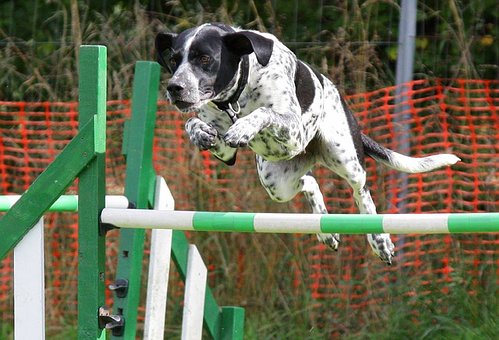First published in Animal Wellness magazine
Your dog loves to say hello when friends and family visit, but his behavior may be better. He barks, leaps up on people, gets under their feet, or gives them big sloppy kisses. Learn how to teach your dog good behavior around guests.
Maybe your dog doesn’t like visitors and responds with growling, fear, or even aggression. Either way, he’s not as well-behaved around guests as you’d like him to be. By understanding your dog’s mindset, you can help ensure he’ll observe proper “petiquette” during the holidays or any other time visitors are expected.
“A goal is to make yourself, your guests, and your environment ‘boring’,” says renowned positive trainer Victoria Stilwell. “If the dog feels it’s no big deal when someone new comes through the door and sits on his favorite couch, or when there are a lot of people around the dining room table, he won’t feel a need to respond.”
The key to a dog that behaves well with guests is to plan, she adds. “Work well in advance on your dog’s greeting behavior, and get him used to seeing new people in the house.”
No jumping!
“Most dogs jump on people through sheer excitement and because it is an effective means of getting attention,” says Victoria. “But some jump because they feel uneasy when someone new comes into the home, and jumping is an effective way to cope with that discomfort. The best way to stop your dog from jumping up is to ignore her while she’s doing it.” Victoria suggests the following five training steps:
1. Each time your dog jumps up at you, turn your back.
2. Do not look at, talk to, or touch your dog at any time. Fold your arms in front of you so that you become boring.
3. When he stops jumping, wait three seconds for four paws on the floor, then reward the self-control with your attention.
4. If he jumps again, repeat the exercise.
5. Practice this with friends and family members for consistency.
Personal space
Not everyone likes dogs, and some are even frightened of them. Not every dog likes strangers either. In situations like this, it’s best to give everyone their personal space and not force interactions. “To avoid an unpleasant situation, if you have visitors who are scared of dogs, the kindest and safest thing to do for all concerned is to put your dog in another room or contain him safely behind a baby gate,” says Victoria.
Is it the dog that’s scared? “Aggressive or shy dogs need to be put in another room away from holiday guests,” says Dr. Nick Dodman of the Animal Behavior Department at the Cummings School of Veterinary Sciences. Keep in mind that a stressed or reactive canine is much more likely to bite someone than a dog who loves being around people.
“Small dogs feel especially vulnerable because of their size, and feel the need to defend themselves from people who loom over them as they bend down to say hello,” says Victoria. “If you have a reactive dog of any size, use safe management techniques to avoid any issues. If you can’t contain your dog, tell your guests not to pay him any attention when they first come in. If the dog continues to be fearful, tell visitors to ignore him for the duration of their stay. This takes the pressure off everyone and gives them much-needed space.”
If you put your dog in another part of the house, away from the action, give him something to keep him occupied. If he’s going to be left in another room on his own for an extended period, advises Dr. Dodman make sure he has some toys to keep him busy. Interactive toys, such as a Kong stuffed with healthy treats or food, are best.
Stop begging
Begging at the table is a common complaint from dog parents, yet many consistently reinforce this unwanted behavior by giving treats from their plates.
“The best way to prevent begging is to never feed your dogs from the dinner table,” says Stilwell. “If you have a dog prone to doing this, get in his way.” Block his path with your body and say “back” while waving him off, but do not physically move him or yell at him. Blocking is how dogs control space with other dogs; by doing this yourself, you’re clearly communicating to him that you want your space while at the dining table.
“If you need to move your dog into another room, you will not be reinforcing bad behavior,” adds Victoria. “You will instead be moving him from temptation, and setting him up for success by not giving him the ability to practice the begging behavior.”
Again, the time to start teaching your dog “petiquette” is not when guests arrive. Instead, start the training well in advance, preferably when the dog is young, and practice the lessons regularly. That way, he’ll be on his best behavior for the festive season – and all year round.
C.B



